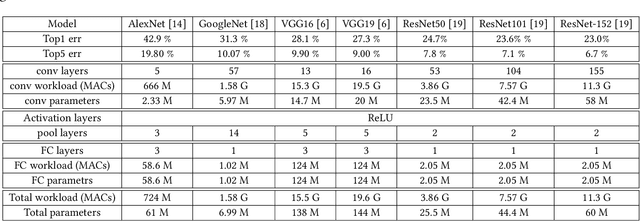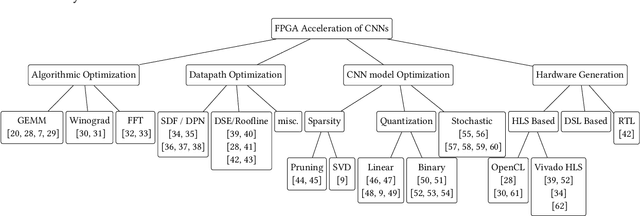Accelerating CNN inference on FPGAs: A Survey
Paper and Code
May 26, 2018



Convolutional Neural Networks (CNNs) are currently adopted to solve an ever greater number of problems, ranging from speech recognition to image classification and segmentation. The large amount of processing required by CNNs calls for dedicated and tailored hardware support methods. Moreover, CNN workloads have a streaming nature, well suited to reconfigurable hardware architectures such as FPGAs. The amount and diversity of research on the subject of CNN FPGA acceleration within the last 3 years demonstrates the tremendous industrial and academic interest. This paper presents a state-of-the-art of CNN inference accelerators over FPGAs. The computational workloads, their parallelism and the involved memory accesses are analyzed. At the level of neurons, optimizations of the convolutional and fully connected layers are explained and the performances of the different methods compared. At the network level, approximate computing and datapath optimization methods are covered and state-of-the-art approaches compared. The methods and tools investigated in this survey represent the recent trends in FPGA CNN inference accelerators and will fuel the future advances on efficient hardware deep learning.
 Add to Chrome
Add to Chrome Add to Firefox
Add to Firefox Add to Edge
Add to Edge